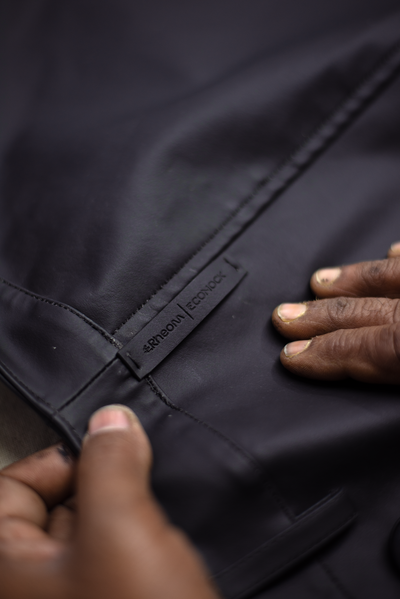The UK is set to take a significant step towards sustainability in the water sports sector with the development of the country's first-ever wetsuit recycling facility. This effort, funded by Future Fibres Network Plus, is a collaboration between leading UK universities and fashion industry trade bodies. The groundbreaking project aims to recycle neoprene, the material widely used in wetsuits, which currently faces an unsustainable end-of-life disposal process, with over 380 tonnes of wetsuits either burned or landfilled each year.
The initiative is being led by the University of Plymouth, in partnership with Circular Flow, an industry leader with a current recycling facility in Bulgaria. This new project, however, focuses on the potential for a UK-based recycling operation. Establishing a facility on British shores is crucial, as the country boasts some of the world’s most popular surfing locations, yet it lacks the infrastructure to properly manage the disposal of neoprene wetsuits.
Emma Major-Mudge, Head of Sales and Commercial Partnerships at Circular Flow, explained the challenge: “Many of those who buy and wear wetsuits have a genuine interest in the environment, and therefore in the sustainability of these products. However, wetsuits are one of the hardest products to recycle and the possibility of opening a recycling facility in the UK is very exciting.”
The project aims to tackle two key areas: the logistics of recycling wetsuits and understanding consumer demand for recycled neoprene products. Dr Kayleigh Wyles, Associate Professor in Environmental Psychology at the University of Plymouth, who is leading the project, stated, “Our project will investigate the level of interest among UK businesses for returning end-of-life wetsuits and accessories to a UK facility where they can be turned into new and useful products. We also aim to understand consumers’ willingness to purchase and wear recycled neoprene products.”
Dr. Wyles added that the long-term goal is to promote circularity within the water sports industry, ensuring that wetsuits are reused or repurposed rather than discarded. This could potentially save hundreds of tonnes of waste from ending up in landfills annually.
The initiative is one of eight new projects recently funded by Future Fibres Network Plus, a £1 million fund designed to bring environmental science to the heart of the UK’s fashion, clothing, and textile sectors. The network is a collaboration between the University of Exeter, along with the Universities of Leeds, Huddersfield, and Plymouth, University of the Arts London, and the UK Fashion and Textile Association (UKFT).
As part of the network’s flexible fund, the project is a key step towards creating more sustainable and circular practices within the fashion industry. If the study proves there is sufficient demand for a wetsuit recycling facility in the UK, the team will develop an investment pack to attract funding for the facility’s construction.
The Future Fibres Network Plus also funds a number of other projects aimed at creating sustainable practices across the textile and fashion industries. These include the development of sustainable, biodegradable sequins by the University of the Arts London, and a new process for dyeing fabrics with less environmental impact.
Dr Katie Major-Smith, a post-doctoral researcher involved in the wetsuit recycling project, expressed her enthusiasm for the project’s potential: “Ultimately, we hope to promote circularity in the water sports industry and keep hundreds of tonnes of wetsuits out of landfill.”
Additionally, the project aims to collaborate with industry stakeholders to assess the viability of returning used wetsuits and accessories to a UK-based facility, where they can be processed and reused. This is seen as an important move for not only the surfing and diving communities but also for the UK’s broader efforts to meet sustainability targets in the fashion sector.
Through these efforts, Future Fibres Network Plus is supporting a range of innovative solutions across the UK. Other projects funded by the network are exploring advancements such as improved recycling of polyester and bacteria-based solutions for extending the lifespan of sportswear. These projects reflect a growing awareness of the environmental impact of textiles and a collective push to reduce waste and make products more sustainable.
If successful, the wetsuit recycling facility could be a game changer for the UK water sports industry, setting a precedent for sustainable practices in other areas of textile manufacturing. As the project continues, the collaboration between universities and industry bodies will be essential in turning these ambitious plans into a tangible reality.
With sustainability at the forefront of the agenda, this innovative project could also inspire other industries to consider similar circular practices to reduce their environmental footprint and contribute to the UK’s efforts to lead the charge on environmental sustainability.






